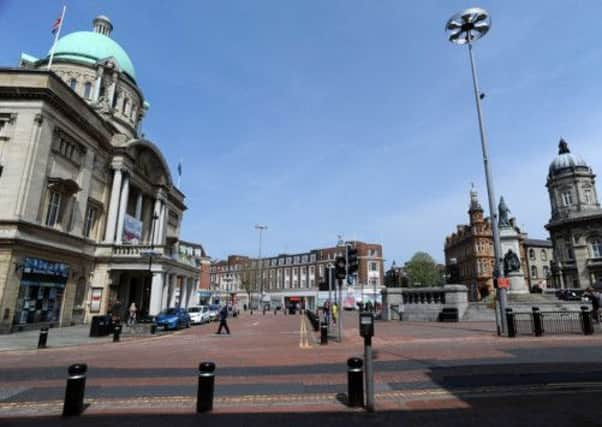Hull Council failing to collect debts of £5m a year


Figures obtained by the Yorkshire Post show Hull Council had outstanding council tax debts of £2.9m in the last financial year, of £2.52m in 2011/12, and of £2.86m in 2010/11.
Corresponding debts for business rates totalled £2.62m in the last financial year, £2.47m in 2011/12, and £1.98m in 2010/11.
Advertisement
Hide AdAdvertisement
Hide AdThe authority, which has to save more than £40m by 2015/16, says it continues to pursue historic council tax and business rates debts and “generally” achieves a 99 per cent collection rate for any given year.
But the actual levels of outstanding debt are likely to be far higher, as the council declined to give figures for arrears relating to the Business Improvement District levy, housing rents, commercial rents, former tenant rent arrears, benefit overpayments, parking charges, adult service care fees and other debts such as unpaid fees and charges.
The authority has launched a consultation on its debt recovery policy, which has been in force since 2007.
A spokeswoman said: “The council collects a wide range of incomes as part of its role and needs to consult on its approach to debt recovery in order to adopt a balanced approach.
Advertisement
Hide AdAdvertisement
Hide Ad“The corporate debt policy provides a framework for how the council will work with its customers and partners to collect debt from citizens and businesses.
“It outlines what it will do to help those who are in debt.”
She added: “To give an indication of collection performance for some high value areas, ie regarding council tax and business rates, the council ultimately collects up to 99.3 per cent and 99.1 per cent, respectively, from these areas, thereby maximising the income to the council for the benefit of the residents of Hull.”
Andy Sims, assistant head of service for revenues and benefits, said: “The policy will highlight that efficient action will be taken against those that will not pay the council and also detail the clear and professional advice for those that cannot pay.
Advertisement
Hide AdAdvertisement
Hide Ad“By working together with our partners, we can advise those who struggle with their finances, thereby increasing the potential for the authority to recover as much money owed to it as possible.
“This is absolutely essential in these times when other sources of income to the council such as grant funding are being reduced.”
Last December, deputy council leader Daren Hale admitted many of the city’s most vulnerable residents may default on their council tax payments as they faced a “perfect storm” of wholesale changes to the welfare system.
“We’ve got no idea what the collection rates will be and we are worried about that,” he said.
Advertisement
Hide AdAdvertisement
Hide AdCoun Hale also said the authority faced a dilemma over which defaulters to pursue, an issue he called “the morality of enforcement”.
A range of cuts and changes to state support came into effect in April and a helpline set up by the council to offer advice and support received almost 1,200 calls in its first day.
The reforms include the so-called “bedroom tax”, which sees cuts to housing benefit for council and housing association tenants deemed to have spare rooms, with about 4,700 people in Hull thought to be affected.
In July it was revealed that emergency housing payments had doubled in the East Riding since the introduction of the bedroom tax.
Advertisement
Hide AdAdvertisement
Hide AdFigures showed East Riding Council paid out £83,938.94 in discretionary housing payments between April and June, nearly double what was paid over the corresponding period last year.
Penalties for defaulting were shown last week when a Grimsby man was jailed for 21 days for failing to pay council tax to North East Lincolnshire Council. Clifford Woodage, 51, of Hainton Avenue, had paid just £10 towards his £2,803 debt since March 2012.